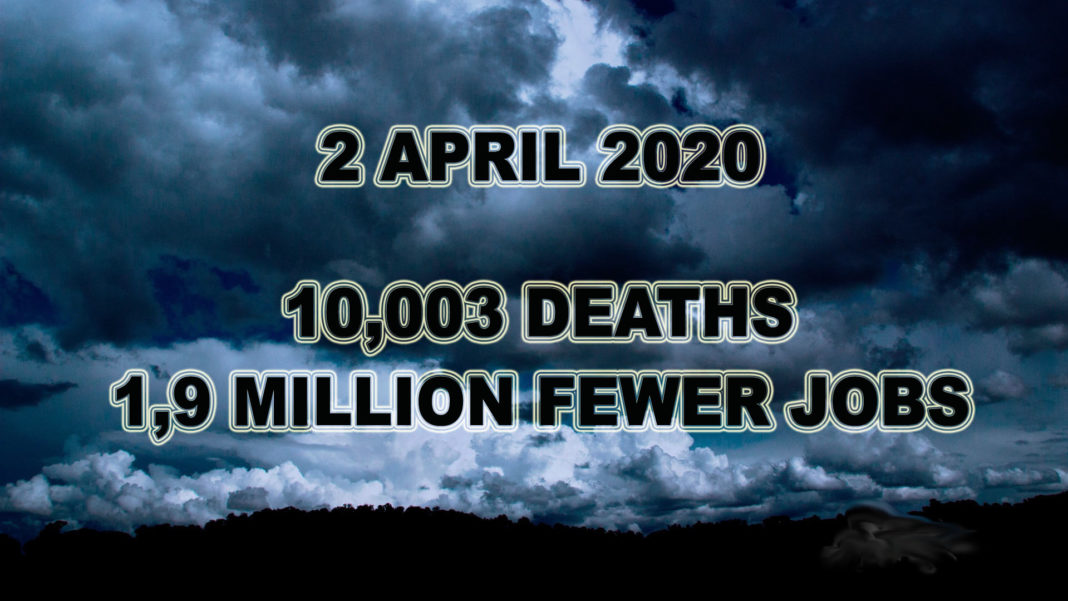- Coronavirus claims 950 lives in 24 hours, record epidemic
- 1,900,000 Spaniards who had jobs and health in February are now confined and unemployed
- Black day in Spain due to coronavirus and unemployment.
Thursday 2 April will go down in the history of Spain as one of it’s very darkest days. Two figures have marked it forever as one of those black days after which nothing is the same as before.
10,003 and 1,900,000. These are the figures that provide the drama, pain and anguish of millions of Spaniards behind which are hidden what remains of their life and employment.
Spain woke up today with the highest rise in unemployment in history (833,000 fewer people in employment) and two hours later received another blow: 10,003 country folk have now lost their lives to the coronavirus epidemic.
The sequence is overwhelming: 832 dead on Saturday, 838 dead on Sunday, 849 dead on Tuesday, 864 dead on Wednesday, and 950 dead on Thursday. Other than Monday when just 812 died, record after record continues to be broken.
The Health Minister, Salvador Illa, said on March 23: “This week we will reach the peak of the epidemic.” That was two weeks ago and we are still waiting. The Government’s forecast, like so many other things, has been completely inaccurate and is far from being achieved any time soon. Spain will soon be in a worse situation than Italy.
In recent days, suspicions about the accuracy of the official death toll from coronavirus have increased. The focus of the doubt is on the deaths that occur in nursing homes, which some communities, as is the case in Catalonia, are not counting because they are failing to test patients or to carry out autopsies. The Ministry of Health only counts those dead from Covid-19 who have been diagnosed with the disease.
The virus continues to bring death and pain to tens of thousands of families, and the measures that the Government has put in place to stop it, which are by no means innocuous, continues to claim its victims: there are now more than 833,000 fewer jobs in March, the largest increase in unemployment in the history of Spain. This is a figure that, despite its magnitude, is not without adding to it the 620,000 workers affected by the ERTEs and the 500,000 self-employed who have also closed down their operations.
This is now the reality: 1,900,000 Spaniards who in February were at work and brimming with health are now confined and without work in their homes. They are threatened at the same time by the virus and by the slowdown in the economy and also with the certainty that the state of alarm will continue for at least two more weeks.





